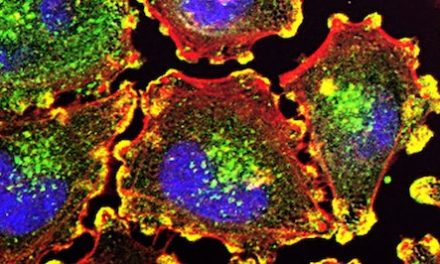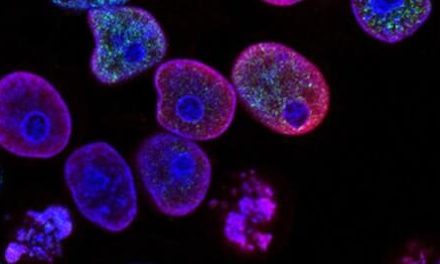Supervised by: Dr Callum Parr MBBS BSc (Hons). Callum studied Medicine at Imperial College London and secured a place as an Academic Foundation Doctor in the competitive North West London region. He received multiple distinctions for his performance throughout medical school. He intercalated in Biomedical Engineering, also at Imperial College London, and received First Class Honours. He has published work in prestigious journals, including the Lancet Respiratory and BMJ.
Abstract
Artificial intelligence refers to intelligence shown by machines made by humans; incorporating many disciplines, including psychology and computer science. Artificial intelligence helps in multiple different aspects of oncology, especially in research, diagnosis, and prognosis. The use of artificial intelligence in oncology helps increase productivity, efficiency, and accuracy, leading to increased survival rates and better methods of tackling cancer. As technology rapidly advances, it can be expected that artificial intelligence will become more advanced than ever and will become deeply integrated with oncology in the future.
Introduction to Oncology and Cancer
Oncology is a branch of medicine that specialises in the research, diagnosis, and treatment of cancer, which is one of the leading causes of death worldwide. In 2018 alone, there were 18.1 million new cases, as well as 9.5 million deaths related to cancer worldwide; these numbers are predicted to rise to 29.5 million new cases and 16.4 million cancer-related deaths in 2040 (1). The main reason cancer is difficult to diagnose is due to its vague symptoms, especially in earlier stages; additionally, it can relapse even after extensive treatments, and it is difficult to predict disease prognosis with high certainty (2). As a result, the use of artificial intelligence in oncology to research, detect, diagnose, and treat cancer is rapidly growing. AI can help manage the use of chemotherapy drugs and predict the tolerance of chemotherapy drugs, so as to optimise the chemotherapy regimen. AI can also help doctors make the right treatment decisions, by reducing unnecessary surgeries, and helping oncologists improve patients’ cancer treatment plans. Artificial intelligence can accurately detect cancer early on, recommend treatments, and identify new drugs, at times better than the capabilities of humans. Vast improvements have been made in oncology through artificial intelligence, namely using multi-factor analysis, conventional logistic regression, and Cox analyses (2). As technology advances, it can be expected that physicians and artificial intelligence will work hand in hand in the fight against cancer.
Uses of AI in Researching Cancer
AI can quickly understand how cancer cells become resistant to anticancer drugs, which can help improve drug development and adjust drug use (3). It also improves the identification of tumour neoantigens and the efficacy of tumour immunotherapy. AI can manage the use of chemotherapy drugs and predict the tolerance of chemotherapy drugs, so as to optimise the chemotherapy regimen and can help doctors make correct treatment decisions, reduce unnecessary surgeries, and help oncologists improve patients’ prognosis and cancer treatment plans.
AI can assist in developing a structure-based drug discovery process by predicting the 3D protein structure, where the drug design is in accordance with the chemical environment of the target protein site (4). This helps to predict the effect of a drug on the target cancerous cells along with safety considerations before their synthesis or production.

Fig. 1. Artificial intelligence in drug discovery (5).
Uses of AI in Diagnosing and Detecting Cancer
Artificial intelligence can be utilised in oncology to bring extensive changes to the ways cancer is researched, diagnosed, and treated. With its vast potential applications, artificial intelligence enhances the survival rate of patients and aids doctors in treating patients with unprecedented accuracy. Artificial intelligence also allows for increased multitasking, efficiently completing a variety of tasks that may have taken a human much longer to complete, and also allows for multimodal learning, a method for integration of different types of data (6). In this process, AI automatically learns how to combine different kinds of data, enhancing its ability to detect cancer, which is especially important since cancer is a complex disease.
Not only that, but unlike humans, artificial intelligence is able to process very large amounts of data. Integrative processing and extraction can allow more accurate disease diagnosis due to the efficiency and effectiveness of learning and training large samples. This results in artificial intelligence being able to extract information from medical images that would not be immediately apparent by human analysis alone, and that could be used to inform on molecular status, prognosis, or treatment sensitivity (2).
Furthermore, artificial intelligence is also significantly better than humans at reading and analysing medical images, as it is able to identify cancer even if it is in its early stages or presenting in a very small tumour. Using multiparametric magnetic resonance imaging (MRI) to identify cancer is a newer approach to identifying cancer in an attempt to detect and treat it as early and quickly as possible (8). However, radiologists don’t always agree on what is in the images and may struggle with identification. This is especially true with prostate cancer, as it requires a lot of expertise to detect. As a result, Kyung Hyun Sung, a radiologist at the University of California, is building an AI-based system called FocalNet to help physicians to better classify prostate cancer (8). To train the programme, the research team collected around 400 preoperative MRI scans of people prior to their prostatectomy. Although this number may seem large, in reality, many more samples are needed for the system to become proficient. In particular, it needs to be ensured that the system is fed data from a diverse variety of people so that it is applicable when treating people of different backgrounds.
In addition, artificial intelligence can be used to detect cancer in its early stages or even before it has begun forming, which is sometimes rarely within the capabilities of human doctors and helps increase the survival rate of this deadly disease. An example of this in action is liquid biopsies, which can be obtained via minimally invasive techniques such as a simple blood test, and can allow for early detection of cancer, monitoring the risk of relapse over time, and guiding treatment options (9).
Uses of AI in Cancer Prognosis
The ability to create an accurate prognosis of a patient’s cancer is one of the most important parts of their treatment. This process is only becoming more accurate with artificial intelligence, specifically with machine learning. Using machine learning, an AI which utilises patterns in data to make predictions, things such as measuring a person’s cancer susceptibility, predicting tumour recurrence, and estimating a survival rate have all yielded much more accurate results than with doctors (2). For example, a test done at NYU which used AI to identify breast cancer in 44,755 ultrasound exams revealed that the AI had 37.3% fewer false positives than doctors, reduced requested biopsies by 27.8%, and was even able to identify breast cancer more than the average of 10 trained radiologists (11). Its area under the receiver operating characteristic curve (AUROC) was 0.962 compared to the radiologists’ 0.924 ± 0.02, and perfect results in cancer identification by this measurement correspond to a score of 1.0 (11). Identifying cancer using breast ultrasounds notoriously produces high false positive rates, so being able to reduce these rates by nearly 40% is incredible. In a study that determined the accuracy of cancer prognoses created by artificial intelligence, the most accurate predictions came from a decision tree AI, which was able to create a prognosis of breast cancer in 433,272 people with an accuracy of 93.6% (2). Decision tree AIs aim to gradually increase their prediction success rate by determining which predictions are successful or unsuccessful, storing that data, and learning from it. Another test focused on artificial intelligence predicting the prognosis of glioblastoma in a sample of 215 people was 89.2% accurate (2).
Conclusion
Challenges and Future of Artifical Intelligence in Oncology
As technology rapidly advances, it can be expected that artificial intelligence will continue to have a large impact on medicine and oncology, especially in researching, detecting, and diagnosing cancer. Artificial intelligence can successfully handle complex nonlinear relationships, fault tolerance, parallel distributed processing, and learning, and its application can improve survival rate, accuracy, productivity, and efficiency in the field of oncology (2). However, there is still a lot more that needs to be done. Firstly, increased collaboration is needed worldwide to feed larger quantities of data to artificial intelligence machines for them to provide increasingly accurate results (6). The FocalNet project had images from only 417 people to train on (8). Furthermore, artificial intelligence systems need to be validated against populations different from the ones they were trained on since a system needs to be accurate in all cases. Especially when it comes to different ethnic groups, artificial intelligence systems must prove to be accurate in all cases. All in all, artificial intelligence is not expected to replace medical professionals completely but will serve as a useful tool to help them make decisions and analyse medical reports and images.
Ethics of Using Artifical Intelligence in Oncology
As artificial intelligence rapidly advances and is integrated into medicine, many concerns are being raised about its uses and ethics. Privacy, in particular, is a big concern for many since artificial intelligence has access to extensive databases with personal information about patients. There are many questions regarding how artificial intelligence and developers use this data, as well as how safely the data is stored (10). Since artificial intelligence systems have access to sensitive data, it then also raises questions regarding algorithmic fairness and biases. Artificial intelligence also lacks the human qualities needed to make moral decisions, meaning these systems cannot be held accountable for their actions. Ethical issues are also among the biggest issues in the implementation of artificial intelligence, mainly due to data safety, transparency, and privacy issues, especially as a result of hacking, bias, and/or data mismanagement and misuse.
Bibliography
- National Cancer Institute. Cancer Statistics. https://www.cancer.gov/about-cancer/understanding/statistics [Accessed 15th July 2022]
- Fong S, Huang S, Yang J, Zhao Q. Artificial intelligence in cancer diagnosis and prognosis: Opportunities and challenges. Cancer Letters. 2020;471: 61-71. DOI: 10.1016/j.canlet.2019.12.007
- Liang G, Fan W, Luo H, Zhu X. The emerging roles of artificial intelligence in cancer drug development and precision therapy : Biomedicine & Pharmacotherapy : 2020: Vol 128 DOI: 10.1016/j.biopha.2020.110255
- Paul D, Sanap G, Shenoy S, Kalyane D, Kalia K, Tekade R. Artificial intelligence in drug discovery and development : Elsevier Public Health Emergency Collection DOI: 10.1016/j.drudis.2020.10.010
- Golden. Drug Discovery. https://golden.com/wiki/Drug_discovery-ZK4V8. [Accessed 17th July 2022]
- Shimizu H, Nakayama KI. Artificial intelligence in oncology. Cancer Science. 2020;111:1452–1460. DOI: 10.1111/cas.14377
- Kann BH, Hosny A, Aerts HJWL. Artificial intelligence for clinical oncology. Cancer Cell. 2021 12;39(7):916-927. DOI: 10.1016/j.ccell.2021.04.002.
- Savage N. How AI is improving cancer diagnostics. Nature. 2020;579. DOI: 10.1038/d41586-020-00847-2
- Bhinder B, Gilvary C, Madhukar N, Elemento O. Artificial Intelligence in Cancer Research and Precision Medicine. Cancer Discovery. 2021;11(4): 900-915. DOI: 10.1158/2159-8290.CD-21-0090
- Johnson A. Ethics in the Era of Artificial Intelligence. IEEE Pulse. 2020;11(3): 44-47. DOI: 10.1109/MPULS.2020.2993667
- Shen Y, Shamout FE, Oliver JR, Witowski J, Kannan K, Park J, et al. Artificial Intelligence System reduces false-positive findings in the interpretation of breast ultrasound. Nature communications. 2021;12(1):5645 DOI: 10.1038/s41467-021-26023-2




